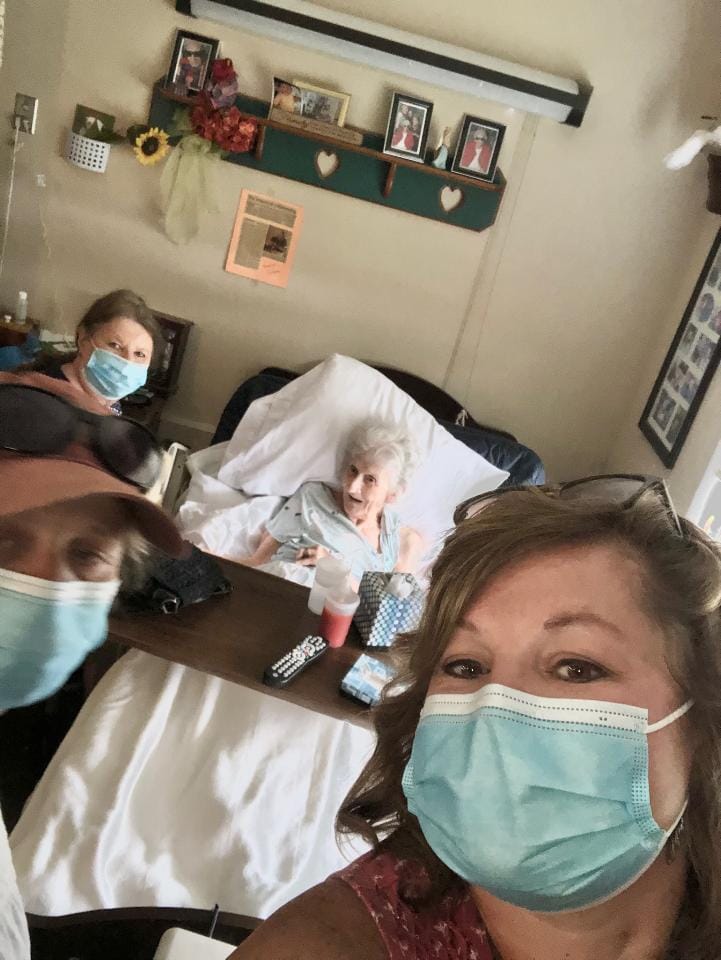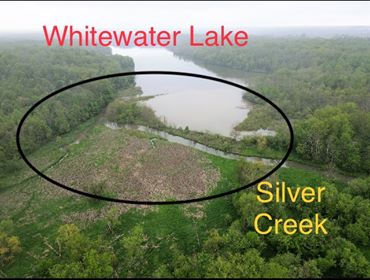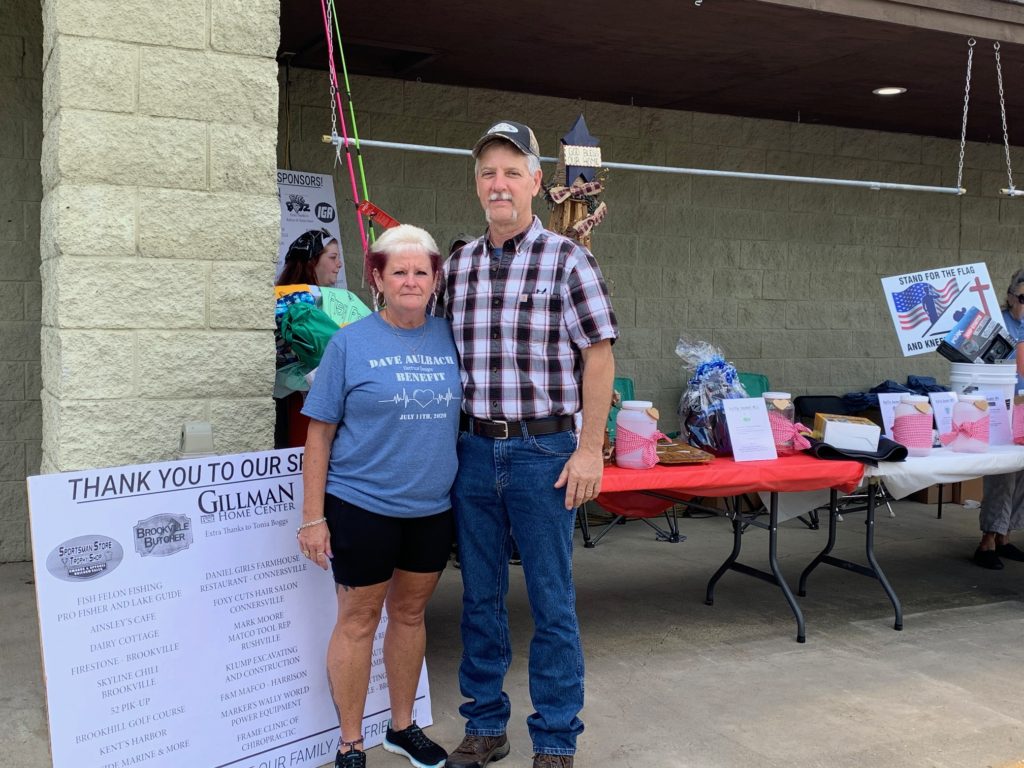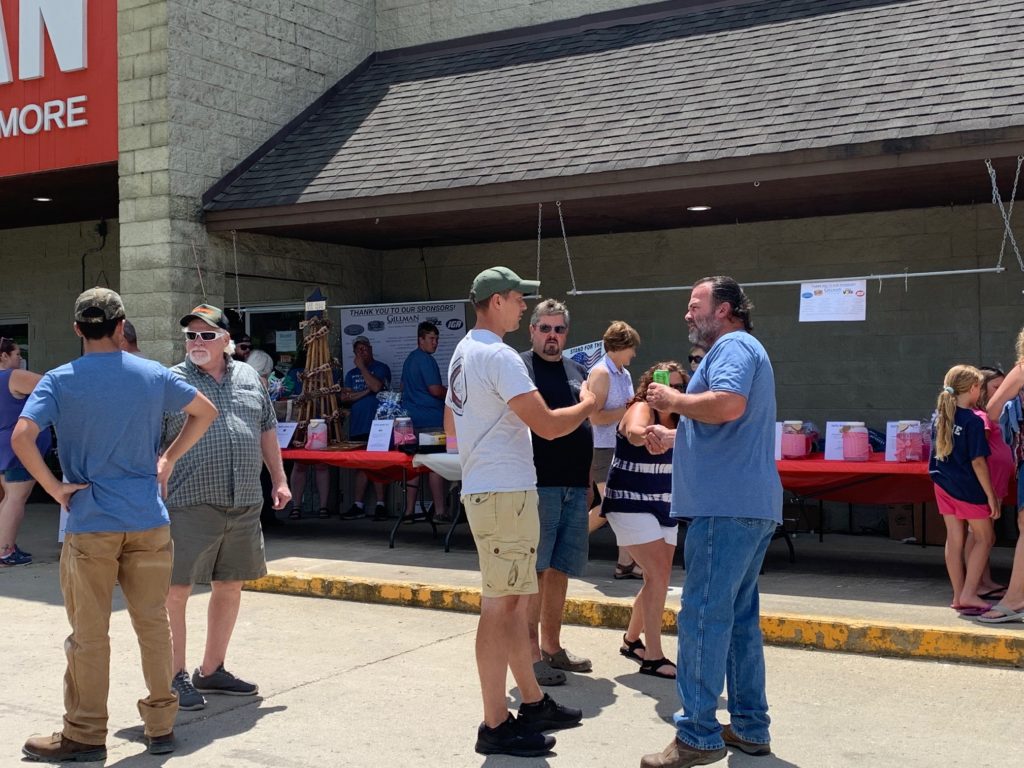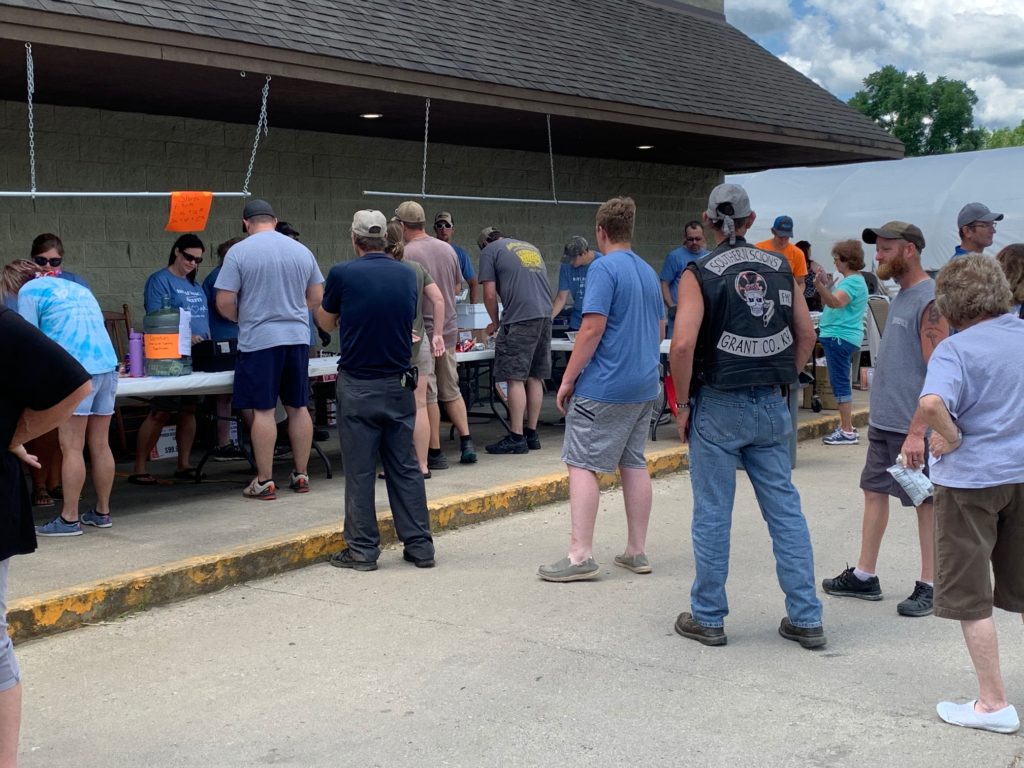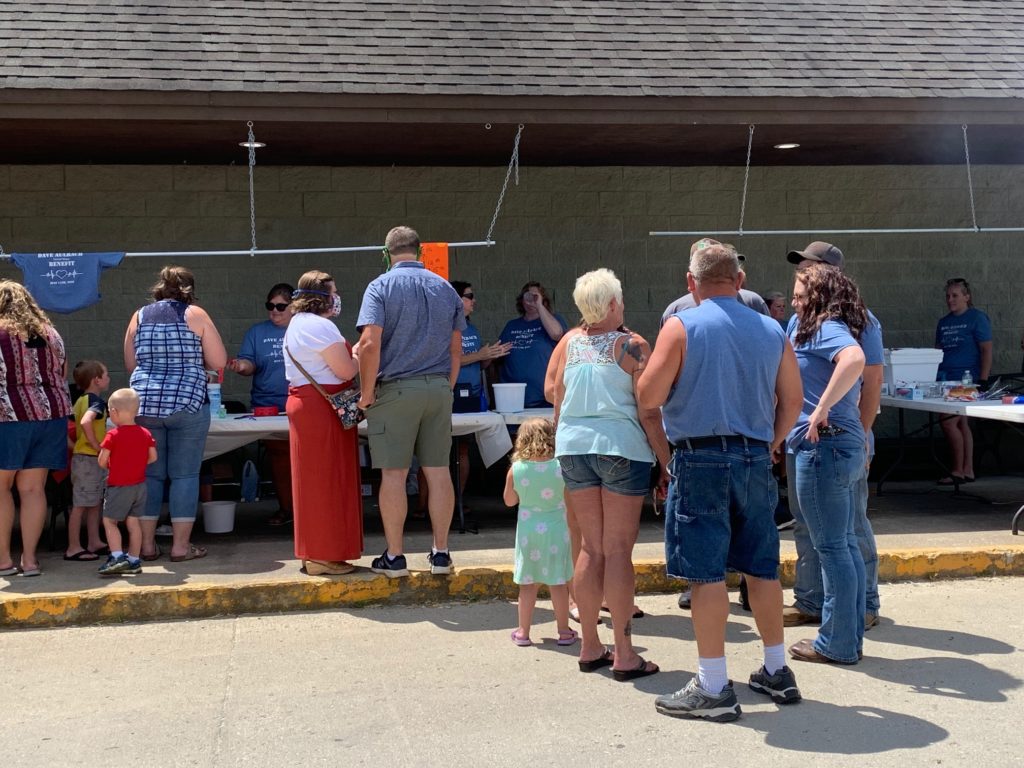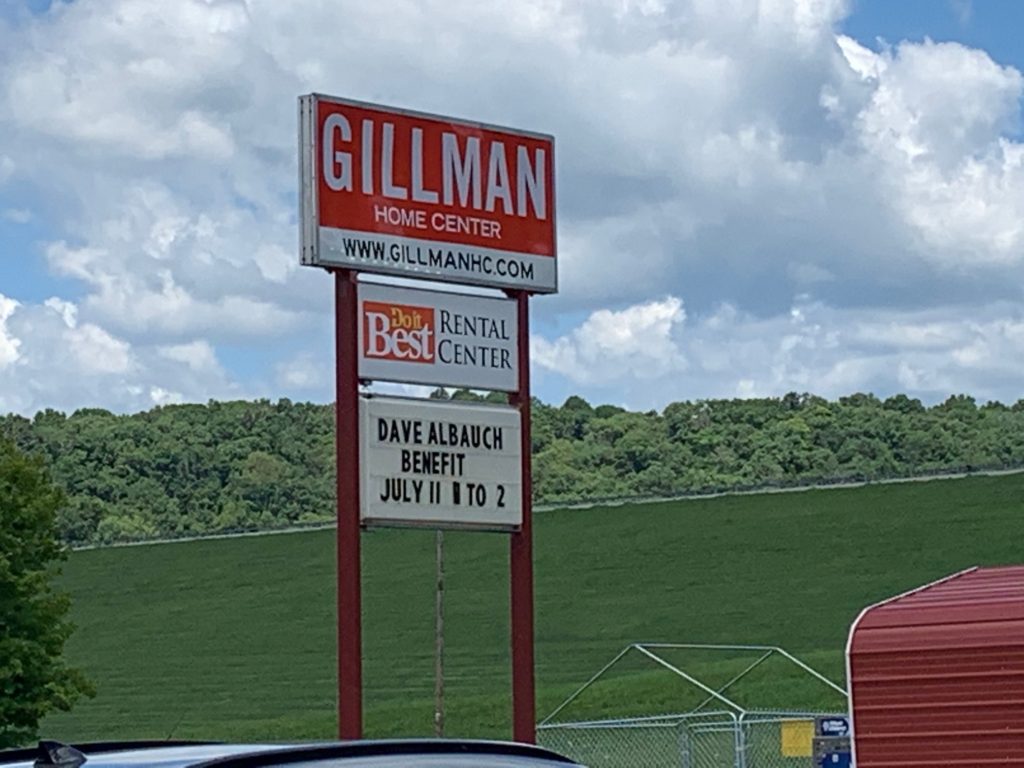By John Estridge
Bridges are not made over night. And state and federal regulations concerning the building of a bridge add years to any bridge project.
That was the unfortunate reality for a River Road resident and other residents along River Road as they are enduring extensive detours because of a closed bridge on River Road.
Doug Graf, an engineer with USI Consultants, presented information about the bridge project in question during the Tuesday, July 7, Franklin County Commissioners’ meeting.
Graf said the engineering firm’s contract for getting permits from Indiana Department of Natural Resources, Indiana Department of Environmental Management and the Army Corps of Engineers, planning the road realignment, stream bank stabilization, utility coordination, bid services and bridge plans is not to exceed $107,700.
At that meeting, the commissioners had to take the contract under advisement to make sure there was enough money available to cover the $107,700 bill.
“I’m all about getting this project done, but we’ve got to make sure our money is in place first,” commission president Tom Linkel said at the July 7 meeting.
With the COVID-19-caused economic shutdown, income from the gas tax dropped dramatically. Also, the state refigured the formula of what gas tax money goes to the state highway and what goes to the counties, and the counties have lost out with the refigured formula, according to commissioners.
At the Tuesday, July 14 commissioners’ meeting, commissioners said there was enough money in place to sign the contract and get the process started.
According to Linkel, the county has already expended $44,000 for a hydraulic study. The other costs include: E&H bridge superstructure is 180,000, and the estimate for bridge construction is somewhere around $500,000 to $600,000, according to commissioner Tom Wilson.
With all the expenses added together, the River Road Bridge project will be close to a $1 million project.
Even before the COVID-19, it took a long time to get a bridge from the planning stages to spanning whatever water it needs to span. With the River Road Bridge, construction is not expected to start until spring of 2022.
This did not sit well with River Road resident Mike Fehlinger.
He was surprised commissioners were not going to start construction this year.
Graf explained it takes a couple of months to come up with the plans and then nine months to a year to get the necessary permits once they send in the applications to the state agencies. And it takes time to do the applications.
Fehlinger talked about the terrible roads people have to drive to make a detour around the closed bridge. River Road, at its best, is deplorable and many of the other roads may even be worse, he and others have said.
“I’m disappointed,” Fehlinger said. “It’s going to be three years before we have a bridge, the way it sounds. Three years before we have a bridge?”
“It’s not only that bridge; it’s any bridge,” Wilson said.
Fehlinger said the commissioners and the county have not done anything to alleviate the bad situation for traveling in the area.
“In the meantime, I would like commissioners to get the same group we had together last August and meet down there,” Fehlinger said. “We’re driving out of our way miles. We’re driving, to go south, east or west, we have to take Long Hollow Road and Long Hollow Hill. Long Hollow Hill, I would bet, it’s either the worst or the top three worst stretches of roads in Franklin County. It’s almost impassible. It’s bad enough the River Road thing has been put off for years. But it’s really bad we can’t get out of there. River Road itself, even getting to Brookville, is bad enough but that one stretch is an insult to the highway department; it is that bad.”
Fehlinger asked again for a meeting to see if conditions could be made better. He said one of his main concerns is even getting reliable access for fire departments and other emergency vehicles.
“It’s not getting any better,” Fehlinger said.
“First of all, I take offense when you said we haven’t done anything,” Linkel said. “We’ve come a long ways in working with USI and getting to this point. We’ve gone a long ways. We’ve got a bridge plan in play. We’ve taken a quote for the bridge. We’ve done a lot. We are working to putting a bridge in place.”
Fehlinger said he appreciates what the commissioners have done to that point, but he wants something to help the situation right now and not in three years.
“Let me reword this,” Fehlinger said. “What I’m getting to is the point I’m trying to emphasize we don’t have any access now. I understand you are making every effort now to get a bridge built. But that doesn’t help us now. That’s what I’m getting to.”
Linkel said he understood what Fehlinger was saying.
“If something can be done so we can get through there and not have to take long routes around,” Fehlinger said. “The worst thing is the emergency vehicles. That’s what I’d like to see if something could be done there.”
Linkel said he would not have a problem with another meeting. However, he said another meeting is pointless without officials from IDEM, DNR and the Army Corps of Engineers.
“That’s what I want,” Fehlinger said. “I want them to look at me and tell me ‘nothing can be done.’ Last August they wishy washy around and said it should be fixed temporarily.”
However, Fehlinger said nothing has been done. He asked if it was because the commissioners could not get the necessary permits.
Linkel explained they are in that process even while the meeting was occurring.
“We can get the permits, but it takes time, about as much time as it takes to get a bridge built there,” Linkel said. “It’s not going to be free. We have to pay a consultant to get those permits.”
Fehlinger said the state officials said it could be done in an emergency. However, the state officials did not put it in writing. Fehlinger acknowledged the commissioners probably could not make a temporary fix without something in writing.
A few years ago the state agencies came down hard on the county because work was done on Big Cedar to alleviate chronic flooding and erosion; however, the county did not have the necessary permits before the work was accomplished.
It cost the county a lot of time and money to get out of that situation.
Linkel asked the county highway engineer Larry Smith to contact the state and federal officials to see if another meeting can be arranged on River Road.
“Keep going,” Fehlinger said.
